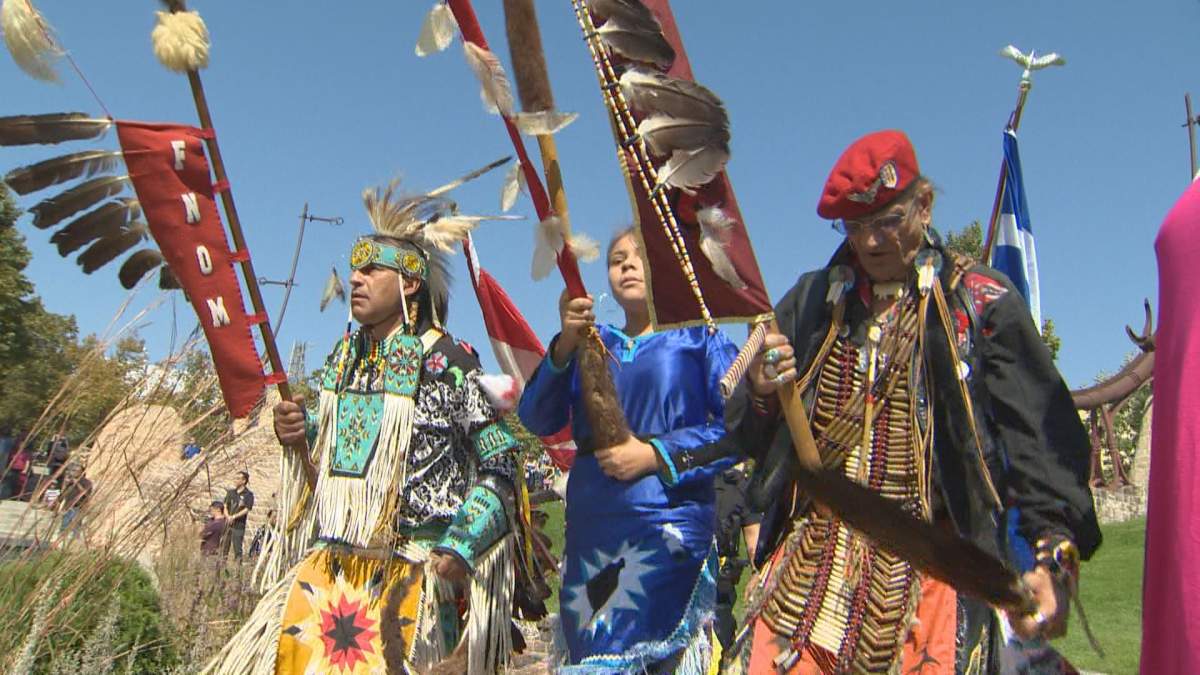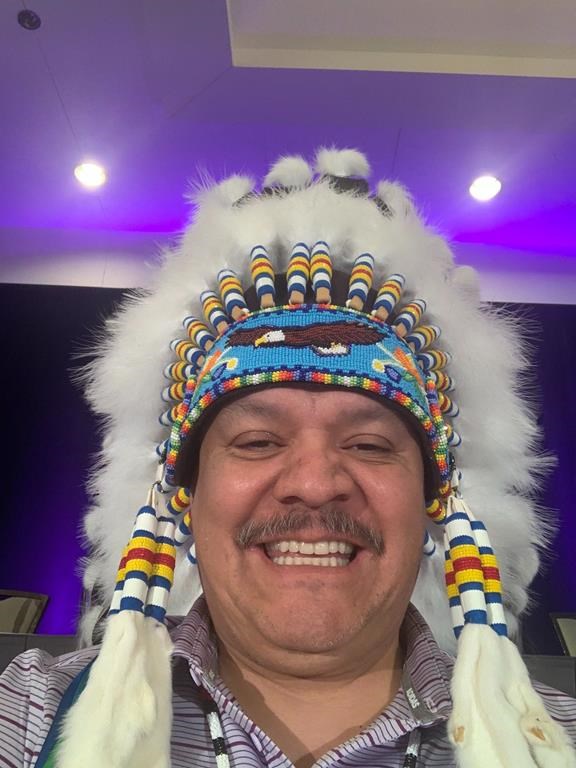A Manitoba chief says his community will hold its annual powwow next month even if provincial public health orders continue to limit the size of public gatherings due to COVID-19.

“It is our culture,” said Cornell McLean of the Lake Manitoba First Nation.
Thousands of people usually travel across the country to dance and reconnect during the powwow season. This year, most traditional gatherings have been cancelled or delayed over concerns about novel coronavirus or due to restrictions on how many people can gather.
Two months ago, Lake Manitoba was one of the first reserves in the province to restrict travel in and out of the community, about 160 kilometres north of Winnipeg. Many other First Nations followed. McLean said there have been no cases of COVID-19 in the region.
He said it has been difficult for many residents as they deal with the stress of isolation, financial strain and concern over their families. Some have turned to alcohol or drugs, he said.
He believes the powwow that is being organized will bring healing.
“It’s important because we are trying to start that healing process for our members.”
There have been 292 cases of COVID-19 in Manitoba as of Wednesday; however, the number of infections has stagnated over the last few weeks. Wednesday marked the fifth consecutive day without a new case and there were only 14 active.
McLean and his council watched as the provincial government began to loosen restrictions this month. He said they decided to move forward with the powwow next month when the limit on outdoor gatherings was increased to 50 people.
“We will make sure that social distancing is being followed,” said the chief, who added that anyone not feeling well should not attend the event June 19-21.

Get weekly health news
“We won’t have people standing arm in arm, that’s for sure, but we will find a way to make it work for our community.”
‘Important practices’
McLean did not indicate how many people are expected to take part in the powwow. Outside of community members, people from four nearby First Nations are likely to come, he said.
- What is Nipah virus? What to know about the disease as India faces outbreak
- Head-Smashed-In Buffalo Jump heritage site enjoys boost after shout out on ‘The Pitt’
- Pizza Pops contaminated with E. coli tied to 7 hospitalizations, data shows
- Pizza Pops E. coli recall grows as roughly a dozen products now hit
Organizers will be watching what happens with provincial health orders and will decide if there needs to be a limit on attendance, but there won’t be less than 100 people, McLean said.
The First Nation may get criticized for holding the powwow, but McLean noted the federal government has made it clear that Indigenous ceremonies won’t be stopped during the pandemic.
“Canada must not and will not prohibit these important practices,” Indigenous Services Minister Marc Miller said earlier this month after RCMP were sent to a sun-dance ceremony in Saskatchewan.
Any decision to cancel or postpone cultural practices remains up to community leadership, Indigenous Services spokesperson Martine Stevens said in an email. First Nations leaders and ceremonial organizers are given information on COVID-19 public health measures.

Manitoba Health said Indigenous ceremonies need to follow current public health recommendations. The department said it will work with First Nations to provide public health guidance.
Arlen Dumas, grand chief of the Assembly of Manitoba Chiefs, said governments and First Nations need to be flexible to ensure traditions are maintained while keeping people safe.
“Everyone is super sensitive to the reality of what we are dealing with in the time of this pandemic,” he said.
Dumas said the assembly is in constant contact with the province’s chief public health officer and the federal government. First Nations are being advised to remain vigilant and look out for one another.
Manitoba chiefs acted quickly to keep communities safe when it was clear COVID-19 was spreading, Dumas said. They continue to do what’s best for their communities now that Manitoba is taking steps to reopen, he added.
“We aren’t going to be able to isolate ourselves forever, so how do we start living with this thing?”

Questions about COVID-19? Here are some things you need to know:
Symptoms can include fever, cough and difficulty breathing — very similar to a cold or flu. Some people can develop a more severe illness. People most at risk of this include older adults and people with severe chronic medical conditions like heart, lung or kidney disease. If you develop symptoms, contact public health authorities.
To prevent the virus from spreading, experts recommend frequent handwashing and coughing into your sleeve. They also recommend minimizing contact with others, staying home as much as possible and maintaining a distance of two metres from other people if you go out.
For full COVID-19 coverage from Global News, click here.









Comments